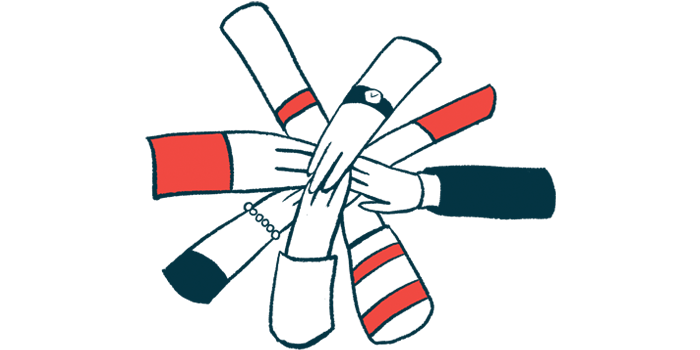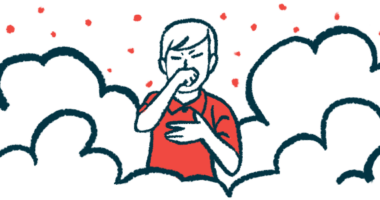ALS Patients Given NurOwn Calling for FDA Meeting to Discuss Refusal
'We are proof that NurOwn works,' they state after US agency declines review

People who took part in clinical testing of NurOwn, a cell therapy for amyotrophic lateral sclerosis (ALS), and family members have sent a letter in support of Brainstorm Cell Therapeutics and its investigational therapy to the U.S. Food and Drug Administration (FDA).
They are also asking for an FDA advisory committee meeting to discuss the agency’s recent decision not to review a company application requesting NurOwn’s approval as an ALS treatment.
“We must insist that the FDA allow testimony about the ‘clinically meaningful’ changes that occurred when we received NurOwn,” the patients and family members wrote, adding that an advisory committee meeting “will allow the full array of data to be examined and will give voice to trial participants, the drug sponsor, investigating neurologists and treating clinicians.”
Patients given NurOwn in clinical trials and expanded access programs
NurOwn treatment involves collecting a patient’s mesenchymal stem cells from the bone marrow, maturing the cells in a lab so they produce high levels of signaling molecules that promote nerve cell health and growth, and then returning the modified cells to the patient via a spinal canal injection.
Brainstorm had announced plans to submit an application asking the FDA to approve NurOwn based on data from a Phase 3 trial (NCT03280056) that compared the therapy against a placebo in 189 people with rapidly progressing ALS.
Top-line results showed the trial failed to meet its goal of showing that NurOwn slowed disease progression in these people. But Brainstorm has argued that this outcome was attributable to some patients having such advanced disease that scores could not meaningfully worsen, so it was impossible to numerically detect a slowing of decline.
More recent trial analyses, excluding those with advanced disease, indicated that ALS progression was slower among patients given NurOwn than a placebo.
The FDA’s refusal to file letter, issued earlier this month, stated it would not accept the application for review due to a lack of “substantial evidence” of efficacy. The agency also indicated that Brainstorm could request a meeting to discuss the letter’s contents, and Brainstorm has expressed an intent to seek a Type A meeting with the FDA.
The patients’ letter was written by five people treated with NurOwn either in the Phase 3 trial, an earlier Phase 2 study, or in an extended access program (EAP). Two other signatories were family members of people who died in their 50s of ALS.
Patients, ranging in age from 33 to 52, reported experiencing lesser decline and some improvements after being treated with NurOwn. Among the gains mentioned were being better able to climb stairs or get into a four-wheel-drive vehicle, swallow “dense foods” like chicken and sushi, being able to write and type, breathing more easily, and speaking more clearly.
“Because of these improvements in function after receiving NurOwn, we were able to make memories with our families by going on camping trips, weeklong vacations to Disneyworld, attending our children’s graduations, celebrating birthdays and anniversaries, and watching our children being born,” the group wrote.
We are asking the FDA to exercise its promised regulatory flexibility.
The patients argue that, by refusing to review the application, the FDA is not acting in accordance with guidance documentation in place since 2019. Among other criteria, the guidance states that treatment efficacy can be shown by even a numerically small slowing of decline, and it states that the FDA can “exercise regulatory flexibility” in light of the urgent need for effective ALS treatments.
The guidance also stresses the importance of considering patient-reported outcomes.
“We are asking the FDA to exercise its promised regulatory flexibility. We are asking for an opportunity to share our evidence at an Advisory Committee meeting,” the group wrote.
Patients also called on the FDA to hear from experts in the field, as well as independent healthcare professionals who have seen changes in their patients at a clinic.
Paula Smith, the mother of an ALS patient, said: “My son Josh is 33 years old. He was in the NurOwn trial and both EAPs. Josh was diagnosed in March of 2019, and he is still walking, talking, eating, and breathing. During the EAP, my son’s pulmonologist documented a 41% improvement in his breathing function. Our outside doctors can’t believe the changes in my son.”
“Combined with the many patient reported outcomes like this, the ‘totality of the evidence’ in the trials and EAP proves NurOwn had a clinical and biological effect,” the letter concluded. “We are proof that NurOwn works. Please don’t let us die waiting.”







